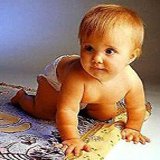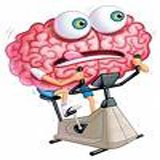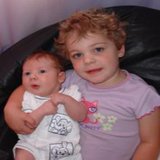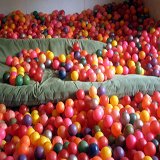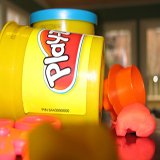Stimulating Baby Brain Development -
22 Month Old to 24 Month Old
Your child is more independent in all areas, including baby brain development and her critical thinking skills, as she approaches the end of her second year.
She understands that she has some control over what happens around her and this increases her willingness to explore.
Through imaginative play toys, she tests out new ideas, and you'll find that this is a favourite form of activity.
Baby Brain Development
22 - 24 month old
Suitable suggestions for Baby Brain Development
(22 Month Old - 24 Month Old)
Let her follow you around the house as you tidy up, make meals, watch television, make a phone call, or do any other routine activity.
Your child learns by watching you closely, by asking you questions and by imitating your actions.
So you should be prepared to have your "shadow " trail you wherever you go and to explain things to her as you go along.
For instance, tell her the reasons why you need to wash the vegetables you are preparing for the family's meal. Your child listens to these explanations attentively.
Puzzle Play
Encourage her to play with a range of puzzles. Try to find ones that are challenging but not so difficult that she gives up without trying. She is already familiar with wooden board games (inset boards) and therefore feels confident enough to attempt unfamiliar ones with a greater number of pieces.
You could give your child her first jigsaw - this should consist of only two pieces, which easily fit together and which are a good size for small hands to manipulate.
She thrives on your praise when she shows you her completed solution.
Memory Games
You can improve memory or apply memory learning by asking her to find a familiar object. She enjoys helping you and likes the challenge.
Make this into a game. For example, let her see you place the newspaper on the kitchen table. A few minutes later, when you are both in another room, pretend that you can't remember where you left it and ask her "Where is the newspaper?" She thinks for a moment, hurriedly makes her way into the kitchen and returns proudly a few moments later.
Trial-and-Error Techniques
Remind her to think about a puzzle and its possible solutions before trying to solve it. Of course she still needs to use trial-and-error techniques as part of her learning development, but she has a greater ability to think before she acts.
Encourage her to look at the puzzle before handling it and once she has spent a few seconds thinking about it, tell her to test her idea.
If it doesn't work, she should think again and then try again.
Be sure to visit all the brain gym exercises pages for different ages.
Read more about the different stages of brain development.
Top Tips for Baby Brain Development
(22 Month Old - 24 Month Old)
- Let her sit at a table.
- Ask her to explain her actions before she carries them out.
- Chat about yesterday's routine.
- Start to talk about categories.
- Have a settled time each day.
Your child is more likely to spend longer playing with her toys when she is seated comfortably at a table with her toys laid out in front of her but within easy reach.
This encourages her to think ahead.
For example, when you see she is about to build something with her construction bricks, ask her to tell you what she plans to make.
She enjoys your attention and will be happy to chat away to you about the previous day's activities.
Pretend that you can't remember some of the things you did together, in order to prompt her recollection.
You can help your child develop the ability to group items by emphasizing common groupings in your everyday conversation.
She begins to understand there are categories of things called, for example, toys, clothes and drinks.
Make a specific point of having a quiet time every day when you and your child sit in the same room, each engaged on your own leisure activity without any other distraction.
This boosts her concentration span.
Top Toys for a 22 Month Old - 24 Month Old
- wooden board games
- jigsaws
- shape boxes
- floor puzzles
- crayons and paper
- set of toy tools or gardening implements
Be sure to browse through all the baby brain development pages that is broken down in different age groups.
Find It!
Can't remember where you read something specific? Just type in your search term in the box below and your specific topic will be returned to you instantly.





